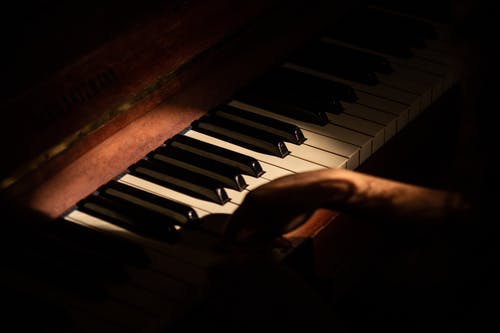If you have ever wondered how much it costs to tune a piano, then you want to read this article to the end.
On average, it costs about $65 to $250 to properly tune a piano and get it working perfectly.
This is simply for one session of tuning the piano and ensuring it sounds better.
Also the price might increase by several hundred dollars if the piano needs multiple sessions to get the tuning right.
This is because piano tuning is a special skill that only professionals should do and takes some work to get it right.
As such you want to ensure that you always leave it to the hands of an expert who will do a good job for you.
Despite it’s big and bulky size, tuning a piano is a fine and delicate job that you simply do not want to leave up to anybody.
How Often Should A Piano Be Tuned?

With regular and proper maintenance, a piano can retain it’s sound for years
However, you want to make sure that you regularly tune your piano so that it continues to produce awesome sound when used.
While talking with a lot of manufacturers and technicians, it is advisable that you tune your pianos at least 4 times a year.
When you think about it, that’s once every quarter which in my opinion is not such a bad idea.
Doing so will ensure that your piano retains its pitch and does not sound twangy or give a buzzing sound when used.
Related: Check out this article that I wrote on How does a piano change pitch?
The Importance of Piano Tuning
Tuning is an important part of regular piano maintenance.
Regular tunings keep the tension in the strings from loosening too much and allow the technician to inspect the instrument for signs of damage to the soundboard or action.
Most piano manufacturers recommend tuning the instrument at least twice a year.
However, there are times when pianos need additional tuning.
Brand-new pianos need as many as three or four tunings each year initially to give the strings a chance to stretch and settle.
Additionally, instruments used regularly, such as those in piano studios, practice rooms and churches, require additional tunings because the excessive playing affects the strings.
Pianos used for performance or recording typically go through tuning before each use, and pianos moved from one location to another or that experience extreme humidity changes require additional tunings.
How Long Does A Piano Stay Tuned For?
Usually a piano can stay tuned for 4 months before it needs to be tuned again.
This is because when tuning a piano you are usually fixing the strings and making sure that it gives off the right sound when used.
So as a result of regular use and overtime, the strings will need to be retuned
Some manufacturers are of the opinion that you should tune your piano once every 6 months, which is twice a year
Going by this, we can also say that the least a piano should stay tuned for is 6 months
Can A Piano Be Tuned After 20 Years?
Now looking at 20 years, it may come across as a very long time but one thing I have realised is that as long as the piano is still in good working condition, it can still be tuned.
Even after 100 years, so long as the piano is not damaged and still works perfectly, then it can still be tuned.
The only thing you might notice is that it will need some really good professionals to tune it, but it definitely can still be tuned and serviced even after 20 years.
If it is an old piano and you are considering tuning it, then there is something you need to be aware of.
Pianos that have been neglected for a very long time will need to have additional tuning which is called pitch raising to achieve concert pitch (also called A440 or standard pitch). …
On very old pianos with rusty strings, first tuning the piano to itself is sometimes advisable to test the condition of the piano before adding greater tension
Also here is an article I wrote on Can a piano be stored in a garage?
Can You Tune Your Own Piano?
This is a common question I hear from most people wanting to know if they can successfully tune their own piano
While I get that calling a professional to help you tune your piano can be costly, I will advise that if you can, then please get a professional to help you tune your piano.
But if you really must tune your own piano, then here is a step by step guide to help you do it properly.
First you need to ensure that you get the right tools, which include
- The right tuning wrench. You want to make sure that the head is removable since the best wrenches are usually built this way
- Make sure the tuning wrench also has a star head. This is because A square head will go over the pin, but you will not be able to place the wrench in an ergonomic position in order to finesse the string. You absolutely need a star hex head to properly tune your piano
- You can also get a cheap tuning hammer that will fit your basic needs but ensure that you get high quality tools and not some cheap ones that will damage your piano
- Also something you need to keep in mind is that softwares can actually help in tuning your piano. We live in the age of technology where softwares has been created that helps in efficiently tuning pianos better than any human can. So I will advise that you also look towards getting softwares that will make your job easier.
When tuning your piano yourself, there are many aspects that go into getting the right tune.
Getting the notes in tune is just the first step.
From watching professionals tune a lot of pianos, I have noticed how they strike the same note over and over again.
Sometimes at a very loud volume just to ensure that the notes sound right and that they hold.
There are many techniques utilized by fine tuners in order to be assured that the notes will hold beyond the first hard blow.
One thing you should know is that most strings have a tremendous amount of tension on them and setting the strings properly is usually a difficult task.
Strings have what is called speaking length and non-speaking length areas to them. In between these sections you have points of tension.
Setting a string requires you to deal with the tension points and how they will even out once you strike the string.
Once a note is struck, the tension will even out and the string goes out of tune.
As you can imagine, getting a string to set properly and hold tuning is a very complex task and is something that takes a true professional to finesse and get just right.
There are also over 220 strings on most pianos, and every one will have to be set properly for the piano to stay in tune – it’s a very time consuming task!
Another thing to remember is that when you go up into the higher treble notes the sound will not last very long.
So, it’s very difficult to hear or for a tuning application to register.
Even an experienced tuner can have issues hearing the correct pitch in the extreme high and low registers on a piano.
Will Moving A Piano Put It Out of Tune?
Another issue most people deal with is having to tune their pianos after moving houses or transporting it from one place to another.
After moving a piano, it is advisable that you allow the piano to acclimate to its new environment for at least 2 weeks before tuning.
If you do any tuning before then, the piano will likely go out of tune very quickly and you will need to have another tuning session to get it right
So ensure that you do not do any tuning for at least 2 weeks after moving to avoid wasting your money.
Can you lay a piano on it’s back? Here is the answer
Can Not Keeping a Piano in Tune Damage It?
Letting a piano get very far out of tune isn’t good for it, but the harm is rarely irreparable.
A piano adjusts to the tension of its strings (typically 38,000 lbs of pressure).
When a piano is allowed to go out of tune, string tension is reduced and the piano settles to the new lower tension.
When the strings are pulled up to proper pitch again, the piano typically requires days or weeks to settle again.
As it adjusts the string tension is changed slightly and the piano needs tuning again.
As a result pianos that are neglected for a year or more often require two or more tunings to reach stability, while a piano that is kept reasonably in-tune holds its tuning better.
Is Tuning a Piano Dangerous?
While tuning a piano might be seen as very easy by most people, this particular job is not without its own dangers.
To get the right tension and sound, the strings are usually tightened to a collective 17 to 20 tons of tension
Also the Sitting right next to a piano sounding board exposes them to over 100 decibels the level at which permanent damage can set in
This is the reason why I will strongly advise that you get professional to help you tune your piano.
